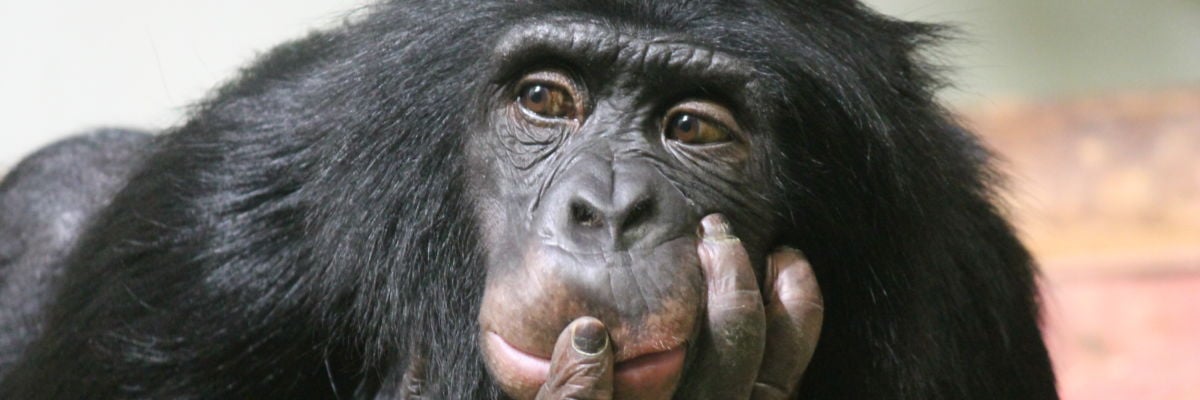
We live in an unprecedented age as regards the treatment of animals. Some insist that animals have ethical and legal rights. Besides the extreme case of PETA (People for the Ethical Treatment of Animals), we are all familiar with people who, out of philosophical-ethical consideration of animals, refuse outright to eat meat, poultry, or fish (vegetarians) or indeed any food product derived even partly from animals, including dairy and eggs (vegans). On the other hand, medical and scientific experimentation not infrequently involve inflicting pain and suffering on animals, even acute pain and suffering—as well as death, of course.
What is the Catholic attitude toward all of this? Do animals have rights that human beings must respect? Or can we use animals however we wish, including subjecting them to medical and scientific experimentation that involve pain and suffering? What does Church teaching hold?
Catholic teaching has always insisted that among God’s creation, there lies a fundamental difference between the human being and all lower created forms, including animals. Though we share much in common with animals, especially in terms of bodily life, the key difference resides in our rationality. Reason accounts for our being made in God’s image (Gen. 1:27) and for the ensuing charge that we should “rule over the fish in the sea and the birds in the sky and over every living creature that moves on the ground” (v. 28).
The Catechism of the Catholic Church (CCC) stipulates that this “rule” allows for three things (2417):
- the “legitimate use [of] animals for food and clothing,”
- that animals “may be domesticated to help man in his work and leisure [i.e., to have as pets],” and
- that “medical and scientific experimentation on animals is a morally acceptable practice if it remains within reasonable limits and contributes to care for or saving human lives.”
This accords with what St. Thomas Aquinas writes: “By divine providence brute animals are intended for man’s use in the natural order. Hence there is nothing wrong for man to make use of them, either by killing them or in any other way whatever. For this reason the Lord said to Noah, ‘Every moving thing that lives shall be food for you; and as I gave you the green plants, I give you everything’ (Gen. 9:3)” (Summa contra Gentiles [SCG] III.112; see also St. Augustine, City of God I.20).
So, yes, God gave us animals, among other reasons, for the purpose of medical and scientific experimentation, and thereby to seek to improve the human condition.
The principal reason for this is that, though animals can feel, they cannot think, as they lack reason. Without reason, they are incapable of conceiving of their own good as an end to pursue for its own sake. Only a rational animal—man—can do this. Animals accordingly lack free choice and what St. Thomas calls “dominion over their actions.” For evidence of this, he notes how “all animals of the same species operate in the same way, as though moved by nature . . . thus every swallow builds its nest and every spider spins its web in the same way” (SCG II.82). If animals pursue their own respective ends (the beaver builds a dam, the cow grazes in pasture), they do so by natural instinct and not in any way by conscious (i.e., rational and free) intention.
Accordingly, animals do not have “rights” in the proper moral and legal sense of the term. They can be treated as a means to a higher end—to the higher end of man, who does indeed enjoy “dominion over his actions.” Animals exist ultimately for our good and not for their own good as such.
Because we enjoy dominion over our actions, we are “causes of ourselves,” as Aquinas puts it (that is, we exercise free choice). And so, we exist for our own good as such. This explains why, unlike animals, we do not submit to the dominion of other men—otherwise known as slavery (we do not call owning a pet “slavery”)—whereby we are treated not as ends, but as means. Existing for his own good as such, every human person, regardless of age, physical or mental condition, or ability, possesses inherent dignity and sacred and inalienable rights. We acknowledge special value in every person, a value that animals don’t possess.
This does not mean that we can treat animals however we please, especially as regards medical and scientific experimentation. “Within reasonable limits” is again the language that Catechism uses, along with “contributes to the care for or saving of human lives,” which signals that the right to experiment upon animals is not absolute (2417; see also 2415). There must be a purpose—a genuine good human purpose—to animal experimentation.
In short, whatever serves man’s genuine good as regards animal experimentation is morally permissible, and whatever does not is morally wrong. Improvement of the human condition provides the standard of measure.
Is it reasonable, then, say, to inject cancerous cells, or some other debilitating illness, into animals like mice in the effort at advancing medical research for humans? Yes, absolutely.
If, however, we are talking about inflicting pain and suffering on animals for their own sake—that is, unnecessary pain and suffering—as kinds of ends in themselves, rather than as means to the higher end of man’s good, then no, this would be wrong. Normally, this is what we mean by cruel, inhumane, or tortuous treatment. Such treatment is wrong.
Still, we might ask: if animals don’t have rights, why exactly is it wrong to inflict needless pain and suffering on them? The reason, though to modern sensibilities it may sound counterintuitive, if not misplaced, is not because of what it does to the animals per se, but because of what it does to us. “It is contrary to human dignity to cause animals to suffer or die needlessly” is how the Catechism puts it (2418). Note the wording here: it is contrary to human, not animal dignity.
St. Thomas explains how this is so, offering a twofold reason. We should refrain from treating animals cruelly, he says, “in order to remove man’s thoughts from being cruel to other men, and lest through being cruel to animals one becomes cruel to human beings; or because injury to an animal leads to the temporal injury either of the doer of the deed or of someone else” (SCG III.112). Of the two, the first reason marks the more pernicious one. Cruel treatment of animals runs the risk of turning us into cruel individuals, into persons who are either indifferent to or, worse, inclined to treating others cruelly, perhaps even to the point of torture.
This risk of psychological self-harm is not to be viewed lightly. To inflict needless pain and torture on animals or to place them in inhumane living conditions is to engage in insensitive cruelty and to foster a kind of hardness of heart—which is very bad for our souls. It corrupts and perverts our moral character, and thereby disposes us to treat others with an adjacent hardness of heart or insensitive cruelty.
The bottom line is that the answer to the question of whether we can do whatever we wish to animals is both yes and no—yes under certain conditions, no as an absolute. Yes, if there is a reasonable chance that our treatment of animals, even to the point of acute pain and suffering, serves man’s good—physical health and wellbeing in the case of scientific and medical experimentation. No, if it amounts to cruel and inhumane treatment, where pain and suffering are inflicted for their own sake, or where the pain and suffering go beyond what is necessary, whether in the case of killing animals for food or clothing or in the case of medical and scientific experimentation. No as well if there is no reasonable chance that said experimentation will serve man’s good—admittedly difficult to determine, but theoretically possible (such as if the pain and suffering are frivolous or ill considered).
In any case, at all points we should bear in mind the Catechism’s admonition: “God surrounds animals with his providential care. By their mere existence they bless him and give him glory. Thus men owe them kindness.”



